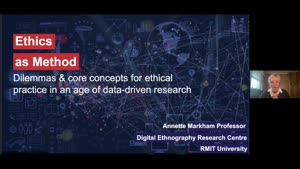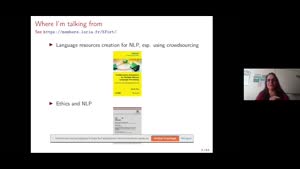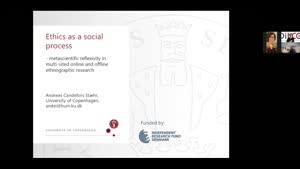DiLCo Methods Day 2023: Post-digital linguistic ethnography: A day-in-the-life approach to understanding contemporary communication (6 October) - Caroline Tagg, Dr. Agnieszka Lyons - University of Hamburg
- Lecture2Go
- Catalog
- F.5 - Geisteswissenschaften
- Sprache, Literatur, Medien (SLM I + II)
- Digital language variation in context (DiLCo)
Catalog
1690 Views
06.10.2023
DiLCo Methods Day 2023: Post-digital linguistic ethnography: A day-in-the-life approach to understanding contemporary communication (6 October)
DiLCo Methods Day 2023
Methods for on/offline nexus analysis: Multi-sited ethnography and heterogeneous data management
The post-digital recognises that the digital has ceased to be a salient or disruptive element of society, but permeates everyday life just as everyday life permeates digital technologies. This mutual influence calls for a shift in scholarly approaches to digital communication, with the digital forming part of a broader analysis of communicative behaviours of people within their social environments.
Our post-digital linguistic ethnography adopts a new approach to the management and analysis of heterogenous datasets which we call a day-in-the-life approach. We focus on the totality of exchanges in which a networked individual engages over a 24-hour period and contextualise these exchanges within their offline social (dis)engagements. This approach foregrounds the ways in which individuals move between multiple interweaving conversational encounters across offline and online sites, demonstrating how digital interactions both shape and are shaped by the (shifting) physical contexts in which they take place and how they aid interactants’ extra-digital aims. Drawing on findings from two projects, Translation and Translanguaging (TLANG, 2014-2018) and Mobile Conversations in Context (MoCo, 2021-2022), we show how contemporary communication is shaped by people’s shifting attention and by their attempts to assert control over their communicative practices as they manage online conversations in the context of in-person encounters and commitments.
Agnieszka Lyons is Reader in Applied Linguistics and Multimodality at Queen Mary University of London. Her research employs multimodal and mediated discourse analytic as well as ethnographic approaches to explore the discursive construction of embodied identity in polycentric migrant environments. She has published on issues related to migration and mobility in Language in Society, Journal of Pragmatics and Social Semiotics, among others. With Caroline Tagg, she authored Mobile Messaging and Resourcefulness: a post-digital ethnography (2022).
Caroline Tagg is Senior Lecturer in Applied Linguistics at The Open University, UK. Her research into language and digital technologies rests on the understanding that digital communication practices are deeply embedded into individuals’ wider lives. She is author of Taking Offence on Social Media (with Philip Seargeant and Amy Aisha Brown, 2017), Message and Medium (with Mel Evans, 2020) and Mobile Messaging and Resourcefulness: a post-digital ethnography (with Agnieszka Lyons, 2022). She is co-editor of the Routledge Focus series Language and Social Media (with Sirpa Leppänen) and editor-in-chief of the international journal Discourse, Context & Media.
The 2023 Methods Day focuses on multi-sited fieldwork across on- and offline sites of interaction and discourse, and the resulting need to manage heterogeneous data, such as interviews, fieldwork notes, and digital data in text and audiovisual format. These research techniques are familiar from earlier stages of digital ethnography and discourse analysis. However, they currently gain importance and complexity as researchers turn to the ‘online/offline nexus’, i.e. the interdependence of online and offline activities in everyday private or organizational communication.
This one-day event includes presentations by researchers with intensive first-hand expertise in conducting multi-sited research and managing heterogeneous data sets. Each presentation showcases a particular research technique or case study methodology. Topics include: designing and conducting blended fieldwork; context-sensitive strategies for on/offline data collection; and software-assisted coding, categorizing and triangulating heterogeneous data.
Video production: Office for Digitality in Teaching: Faculty of Humanities (uhh.de/gw-dl-buero)
---
DiLCo (‘Digital language variation in context’) is a 3-year international research network initiated in 2021 at the University of Hamburg. The network brings together researchers from Europe and USA with expertise in computational, interactional, and ethnographic approaches to digital language and linguistics. It aims to provide a platform for the development of interdisciplinary ideas in digital language and communication research, and for early-career capacity building.
---
DiLCo (‘Digital language variation in context’) is a 3-year international research network initiated in 2021 at the University of Hamburg. The network brings together researchers from Europe and USA with expertise in computational, interactional, and ethnographic approaches to digital language and linguistics. It aims to provide a platform for the development of interdisciplinary ideas in digital language and communication research, and for early-career capacity building.
Technical support
Please click on the link bellow and then fill out the required fields to contact our Support Team!
RRZ Support Link

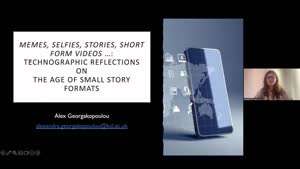
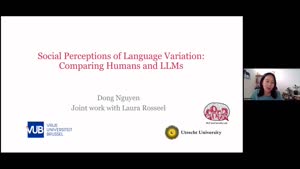
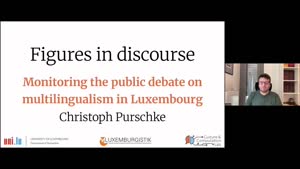
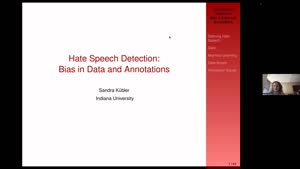
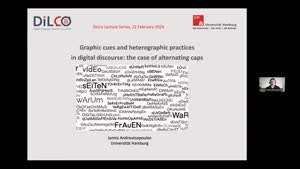
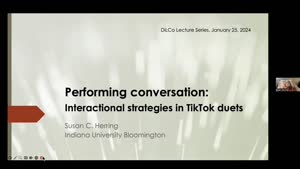
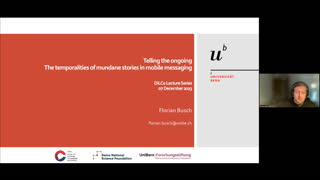
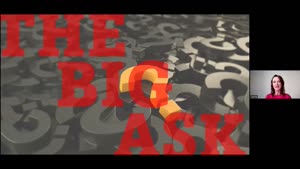
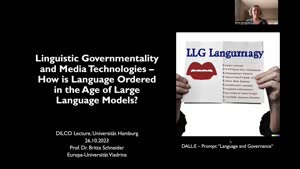
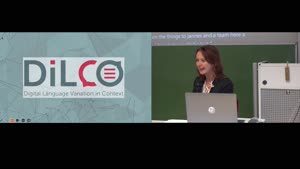
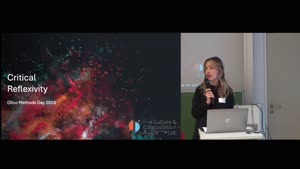
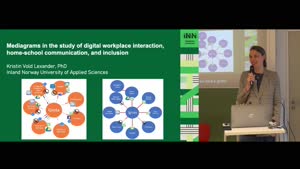
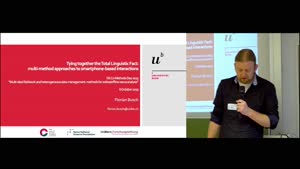
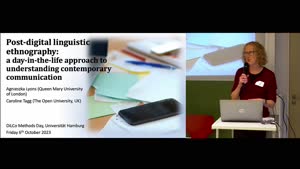
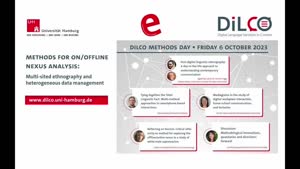
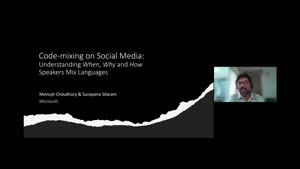
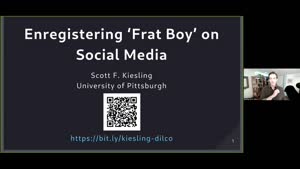
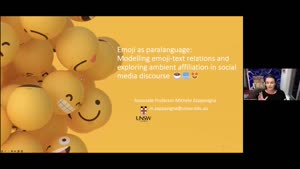
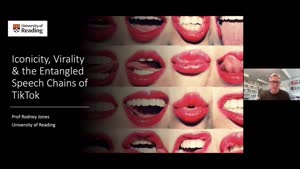
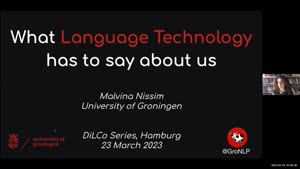
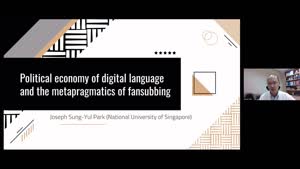
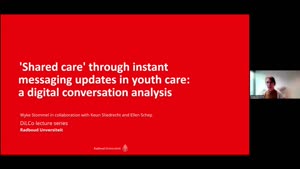
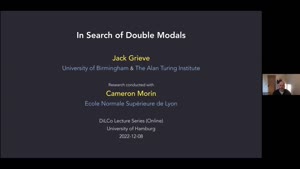
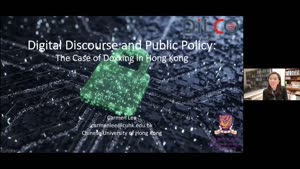
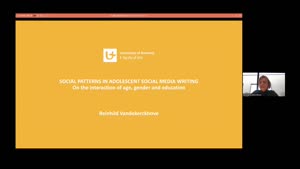
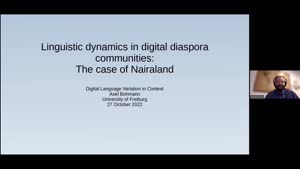
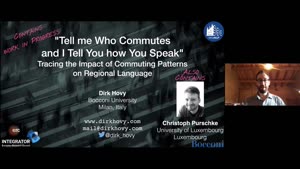
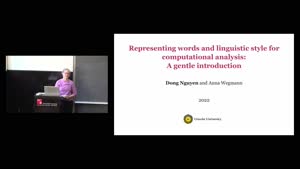
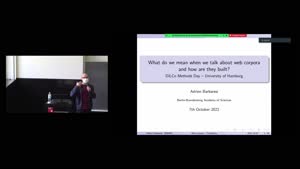
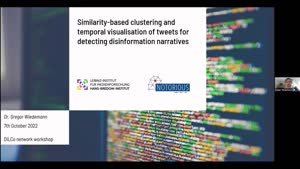
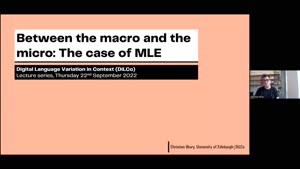
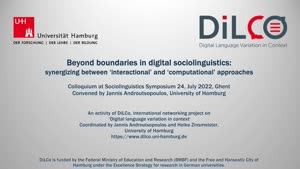
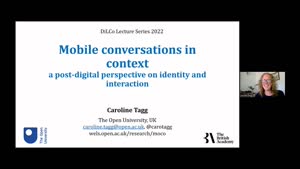
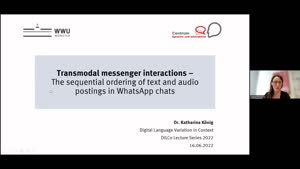
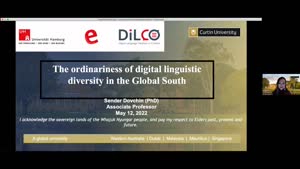
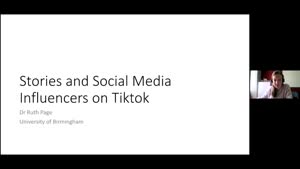
![Thumbnail - Graphic Prosody and political discourse on Greek Reddit [Presentation in Greek]](https://lecture2go.uni-hamburg.de/images/00.000_video-61074_2022-03-30_18-30_m.jpg?lastmodified=1663761108652)
